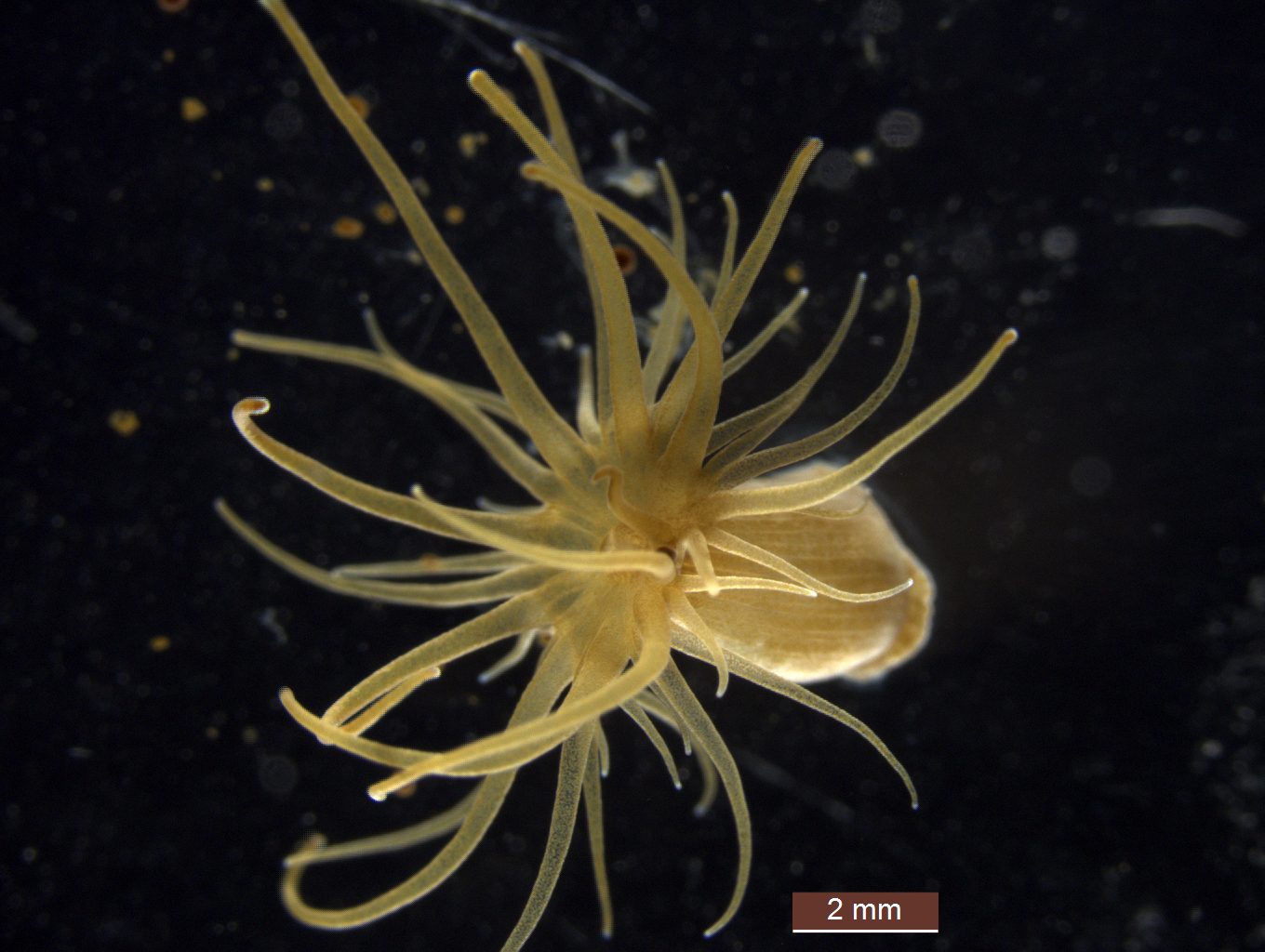BU Biologists say sea anemones need a healthy diet, too
Good nutrition increases the immunity of sea anemones — a group of tiny marine invertebrates that look like plants with tentacles — to bacterial pathogens.
Good nutrition increases the immunity of sea anemones — a group of tiny marine invertebrates that look like plants with tentacles — to bacterial pathogens.
Doctors often tell us that balanced diets — along with adequate sleep and exercise — will help prevent colds and viruses. And, according to a new Boston University study, healthy diets are important for the immune systems of simple sea creatures as well.
A paper published this month in Communications Biology from the labs of Biology Professors Tom Gilmore, Sarah Davies, and Trevor Siggers, along with Joshua Aguirre Carrión (GRS`22), Ph.D. candidate James Fifer, and Niharika Desai (CAS`23), discovered that lack of nutrition increases the susceptibility of sea anemones — a group of tiny marine invertebrates that look like plants with tentacles — to bacterial pathogens.
 “Your mother, I’m sure, told you to eat right to keep up your immune system. It’s an old story, if people are malnourished, their immune systems are weakened,” said Gilmore, the lead author. “But now it’s clear that this connection between nutrition and immunity is an ancient story, and applies to simple organisms — such that the interplay between proper diet and effective immunity has deep evolutionary origins.”
“Your mother, I’m sure, told you to eat right to keep up your immune system. It’s an old story, if people are malnourished, their immune systems are weakened,” said Gilmore, the lead author. “But now it’s clear that this connection between nutrition and immunity is an ancient story, and applies to simple organisms — such that the interplay between proper diet and effective immunity has deep evolutionary origins.”
Gilmore said that this connection between nutrition and immunity in simple animals isn’t necessarily surprising — even plants that you don’t feed and water are generally going to be more susceptible to bacteria growing on them. But what is perhaps surprising, Gilmore said, is that the same genes and proteins that play a role in nutrient-balanced immunity in humans also appear to play a role in immunity in the simple sea animals.
 That means that scientists can study these simple creatures to learn more about the origins of human immunity and immune deficiencies. “We can relatively easily grow these organisms in the lab, we can isolate their genes, we can isolate their proteins, we can look at messenger RNA expression. We can use many of the standard molecular techniques that have been used to study similar biological processes in mice and humans,” Gilmore said.
That means that scientists can study these simple creatures to learn more about the origins of human immunity and immune deficiencies. “We can relatively easily grow these organisms in the lab, we can isolate their genes, we can isolate their proteins, we can look at messenger RNA expression. We can use many of the standard molecular techniques that have been used to study similar biological processes in mice and humans,” Gilmore said.
Gilmore said these studies also have implications for marine ecology in that corals — which are closely related to sea anemones — are suffering from environmentally-induced diseases that are influenced by the availability of nutrients, along with better-known threats of rising ocean temperatures and pollutants.
“We hear that coral are dying from climate change and global warming,” Gilmore said. “That’s true, but they are also more susceptible to those environmental effects based on the levels of nutrition that they’re getting in the ocean. It’s hot water, but it’s also often poor nutrition.”
The results may also have implications for developing new drugs to combat disease in humans. If we understand how simple organisms that live “in a soup of microorganisms” combat the pathogens around them in the water, it may lead to the identification of new kinds of antibiotics, which can be used in humans, Gilmore said.
“We can’t fill the ocean up with aspirin, but the whole reason you can go to a doctor and they know what medicine to give you is that we now understand the molecular basis of many diseases,” he said.

Gilmore’s research on coral came from trying to understand the molecular basis of environmental diseases. For many years, his lab focused on human and mammalian immunity — including the study of human immune cell diseases like leukemia and lymphoma — but being around his colleagues in the Department of Biology, as well as those involved in the Boston University Marine Program, inspired him to look at simple sea creatures to understand evolutionary perspectives of these diseases.
Along with faculty members, the research was conducted by biology doctoral students and an undergraduate in the Undergraduate Research Opportunities Program who was supported by BU Alumnus Dr. Loren Wold and funds from New England Biolabs. These studies were also supported by National Science Foundation grants and a Warren McLeod Marine Fellowship.
Carrión, who is a scientist at Generate Biomedicines in Cambridge, Mass., led the study with the support of Desai, who in the fall will attend the Boston University Chobanian & Avedisian School of Medicine.
Learn more about the Gilmore Lab.